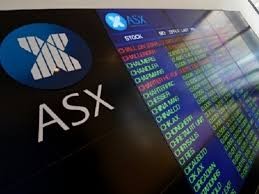Weekly market review
Written and accurate as at: Mar 06, 2018 Current Stats & Facts

The S&P/ASX 300 was down -1.2% in a week which was dominated, at a macro level, by further speculation over the pace of Fed rate hikes and by the announcement late in the piece that President Trump intends to apply tariffs upon the import of steel and aluminium.
Leaving aside the debate over rate hikes, which has been ongoing and is likely to drive periodic bouts of volatility in the near term, largely due to the market’s implied effect of the tariffs. The measures themselves are very short on detail and there are too many unknowns to draw firm conclusions. However, it seems unlikely they will have a profound effect upon US inflation, given steel and aluminium prices routinely fluctuate and comprise only 2% of US total imports. The irony is that a policy ostensibly aimed at the unfair trade practices of China will have very little effect upon it, instead having a greater negative impact on Canada and the EU. China exports very little steel directly to the US - and although its exports into the Middle East and Asia have had a deflationary effect on world-wide steel prices in recent years, this announcement comes after significant steel capacity reductions in China have gone some way to reversing this historical trend. The market’s underlying concern is that this is the opening skirmish of a serious trade war. This is a risk and must be monitored, however given the only marginal effect that the sanctions are likely to have on the Chinese economy, there is a good chance that any reaction from them, at least, may be largely symbolic.
Elsewhere, the macro backdrop remained largely benign. US 10 year yields remained flat despite expectations of accelerated hikes while Australian 10 year yields edged higher. Copper came off -4%, iron ore remained flat, and oil also fell over the week. Yields sensitives held up reasonably well (S&P/ASX 200 AREIT +0.3%) while resources gave up some ground (S&P/ASX 300 Metals & Mining -2.6%). The local reporting season drew to a close, with the week’s results continuing to drive the bulk of dispersion within the market.
Retailer Harvey Norman (HVN) (-15.3%) was among the market’s worst performers, on the back of an almost 20% fall in net profit from the previous corresponding period. This was always going to be a difficult half given the high base effect of strong aircon sales this time last year, however the result demonstrated the continued pressure in Australian traditional retail.
Ramsay Health Care (RHC) (-8.0%), the country’s largest private hospital operator, was also weak after profit fell -4.0% following a one-off charge to restructure the company’s French business. The market is concerned that growth in the sector has stalled as changing patient patterns – with fewer opting for overnight stays – put some pressure on volumes. QBE Insurance’s (QBE) (-5.7%) poor result came as no surprise given management’s guidance downgrade in January, however the lack of detail in a strategy for restoring margins disappointed a market looking for some evidence of a turnaround. The announced sale of its Latin American business is a step in the right direction, but investors are left waiting for an expected Strategy Day later in the half for further details on the path forward. Elsewhere in financials Bank of Queensland (BOQ) (-5.0%) fell ahead of its result in March, as the market grew concerned about stiffer headwinds for the regional banking sector.
Explosives manufacturer Orica (ORI) (-4.9%) downgraded guidance for its H1 result – due in May - on a series of issues including unplanned maintenance at two Australian plants, weather effects in North America, and issues with the Burrup ammonium nitrate plant in Western Australia. The market is still looking for an improvement in the mining cycle to feed through in ORI’s earnings, but have been disappointed this far. Elsewhere in the resource complex, Oil Search (OSH) (-4.5%) was hit late in the week by the news of an earthquake in Papua New Guinea.
Nine Entertainment (NEC) (+8.7%) – was among the market’s best, continuing to enjoy tailwinds from the previous week’s strong result while mineral sand miner Iluka Resources (ILU) (+6.1%) saw a surge in revenue on the back of strong zircon pricing. BlueScope Steel (BSL) (+5.2%) beat profit expectations for the first half, growing earnings despite the headwind of higher energy costs in Australia. Domestically, it should benefit from the lagged effect of stronger Asian steel spreads, helped along by further capacity reduction in China, while the US operation continues to perform well and should ultimately be a beneficiary from improved steel prices if the proposed tariffs do get put in place. CYBG (CYB) (+2.3%) bounced back as the CEO met with local investors. While the potential of top-up provisions for previous misconduct charges remains a risk.










